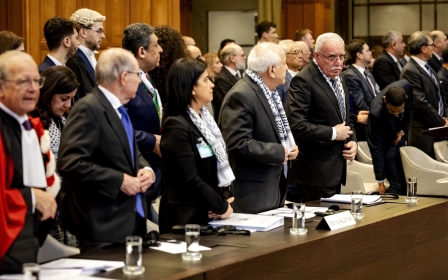South Africa asks World Court to order Israeli withdrawal from Rafah

South Africa asked the International Court of Justice (ICJ) on Friday to order additional emergency measures against Israel over its military assault on Rafah in the Gaza Strip.
In a 10-page document submitted to the ICJ, South Africa asks the World Court to order Israel to "immediately withdraw and cease its military offensive in the Rafah Governorate" and to facilitate "unimpeded access" to humanitarian aid and assistance to the population of Gaza, the document reads.
It also demands the entry of "internationally mandated bodies or officials, investigators, and journalists" into the country for the purpose of "retaining evidence".
It also asks Israel to submit an open report to the ICJ within one week of Friday, detailing the measures Israel has taken to comply with "all previous provisional measures" detailed by the court.
Today's emergency measures are an addition to Israel's ongoing genocide case at the UN's top court in The Hague, where South Africa has accused Israel of acts of genocide against Palestinians.
Stay informed with MEE's newsletters
Sign up to get the latest alerts, insights and analysis, starting with Turkey Unpacked
An interim ruling earlier this year ordered Israel to take measures to prevent acts of genocide in Gaza but did not order Israel to halt military operations, one of South Africa's key demands in the case.
The court was of the opinion that South Africa made a plausible case demonstrating that Israel has displayed intent to execute genocide.
The request for Israel's immediate withdrawal and halt of the military offensive in Rafah adds this provision.
Pending ICJ decision
The nine interim measures requested by South Africa included an immediate cessation of military operations in Gaza, preventing forcible displacement of Palestinians, ceasing any restrictions on humanitarian aid entering the enclave, refraining from committing genocide and inciting it, and preventing the destruction of evidence of alleged crimes in Gaza.
During the interim ruling, which took place on 26 January, the ICJ ruled that Israel must take measures to prevent acts that fall under Article II of the Genocide Convention. These include the killing of members of a particular group, causing serious bodily or mental harm, deliberately bringing about the physical destruction of the group, and imposing measures intended to prevent births.
An Airwars investigation concluded that Palestinian civilians were killed every day in the first two weeks after the ICJ ruling.
The ICJ will aim to issue an opinion regarding the genocide case before the end of the year.
While rulings from the ICJ are legally binding, the court cannot enforce them, as no mechanism can be used to force compliance. Rights groups, however, say that resolutions can still have an impact.
Human Rights Watch said in February that any opinion issued could "carry great moral and legal authority and can ultimately become part of customary international law, which is legally binding on states".
Francesca Albanese, the UN special rapporteur on the occupied Palestinian territories, previously said during a press conference that "if the ICJ is serious about investigating what Israel has done in Gaza as of the 7th of October only, it will be busy for decades".
Middle East Eye delivers independent and unrivalled coverage and analysis of the Middle East, North Africa and beyond. To learn more about republishing this content and the associated fees, please fill out this form. More about MEE can be found here.


